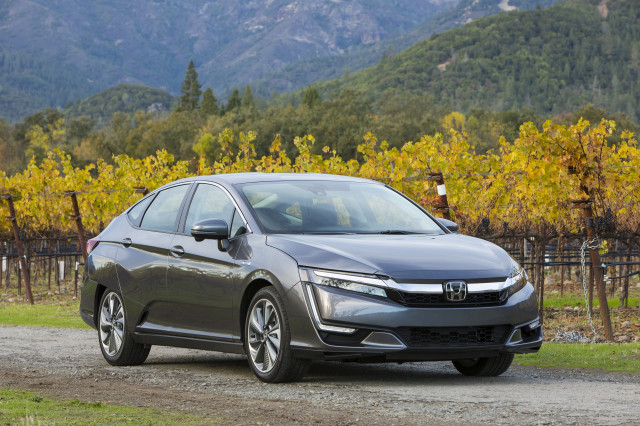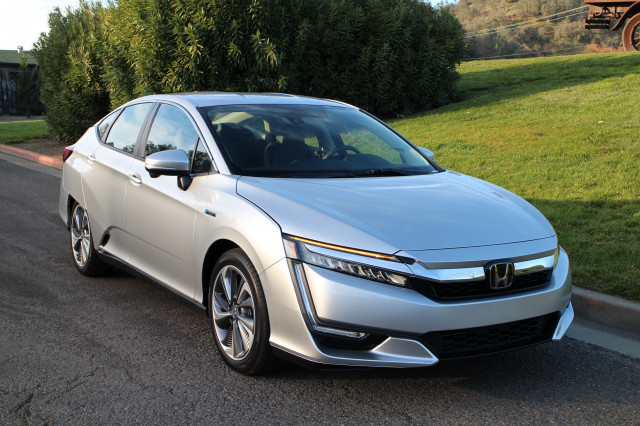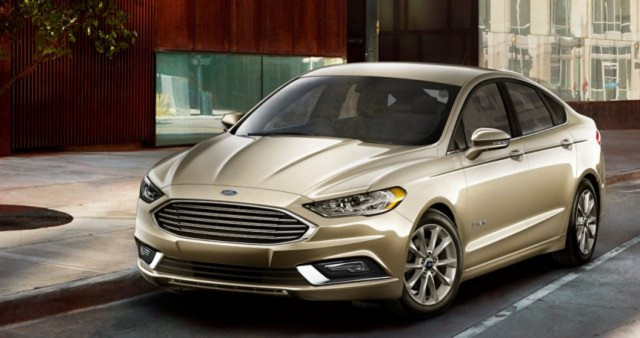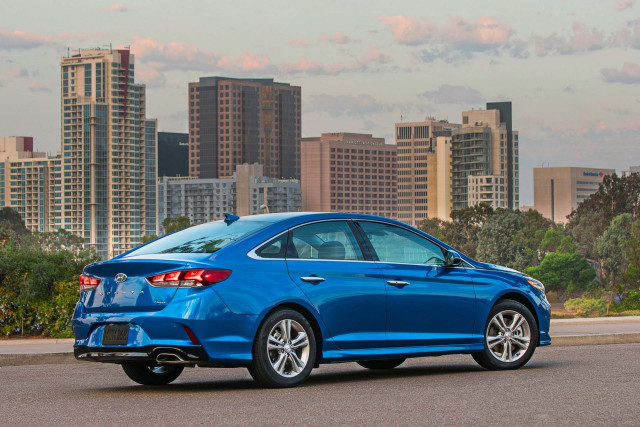Hyundai Motor Company has entered into a Memorandum of Understanding (MOU) with Swiss hydrogen company H2 Energy (H2E). Beginning in 2019 and over a five-year period, Hyundai Motor and H2 Energy will provide 1,000 heavy-duty fuel cell electric trucks and an adequate supply chain for renewable hydrogen.
The fuel cell electric truck is being developed according to European regulations. It features a new 190 kW hydrogen fuel cell system with two fuel cell systems connected in parallel, also a feature of NEXO. It is expected to deliver a single-fueling travel range of approximately 400 km (249 miles), and in order to secure sufficient range, eight large hydrogen tanks are being compactly installed, utilizing areas such as between the cabin and the rigid body.
The fuel cell electric truck features a distinctive design. It is presented in a simple and clean design which is also aerodynamically efficient, and features a spoiler and side protector.
The front grille symbolizes hydrogen through geometric shapes, giving the vehicle a unique and powerful look. The vehicle emanates an eco-friendly look with a blue color application and a bold side body graphic on the container, which also visualizes its dynamic character.
The supply of a fleet of fuel-cell electric trucks to H2 Energy marks Hyundai Motor’s first expansion of its FCEV leadership into the eco-friendly commercial vehicle sector. Hyundai introduced the world’s first mass-produced fuel cell electric vehicle, the Tucson Fuel Cell in 2013, and released NEXO FCEV this year.
The MOU signing ceremony took place in the IAA Commercial Vehicles 2018 exhibition’s convention center and was attended by key individuals from each company, including Hyundai Motor’s Executive Vice President and Head of Commercial Vehicle Division, In Cheol Lee, as well as Chairman of H2E, Rolf Huber.
H2 Energy is a company specializing in the production and supply of renewable hydrogen in Switzerland, with business subsidiaries in Germany, Norway and Austria. The company is experienced in the roll-out of an optimized hydrogen ecosystem, which focuses on commercial viability for all stakeholders.
H2 Energy plans to make Hyundai’s fuel cell electric trucks available to its Swiss customers starting with the dedicated members of the Swiss H2 Association, which includes several refueling-station operators, retailers and other customers focusing on eco-friendly innovative solutions for logistics and goods distribution.
To cater to growing opportunities in the sector, Hyundai plans to diversify its fuel cell electric commercial vehicle line-up. Currently under development is the medium-sized fuel cell electric truck (Payload: 4~5 ton) which can be used in the public services domain such as vehicles used for cleaning.
Hyundai Motor also introduced fuel cell electric express buses during the PyeongChang Olympics in South Korea last February and is currently conducting a pilot operation with fuel cell electric buses in South Korea’s major cities, whilst reviewing plans for mass production by 2020.
Domestically, FCEV taxis and car-sharing services are operating on public roads in Ulsan and Gwangju.
Hyundai Motor began the first fuel cell electric vehicle lease in the United States, also supporting its wider transport industry, including FCEV taxis, and car-sharing services to further support the spread of eco-friendly technology usage.










